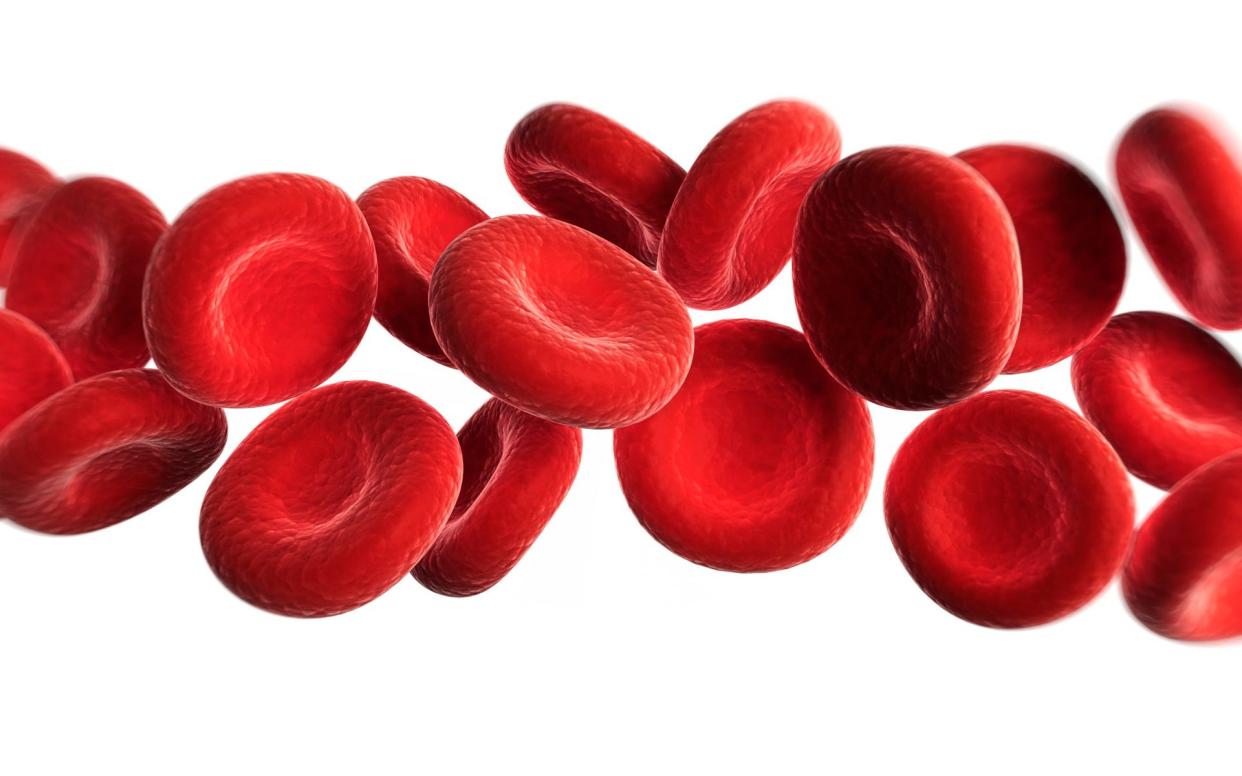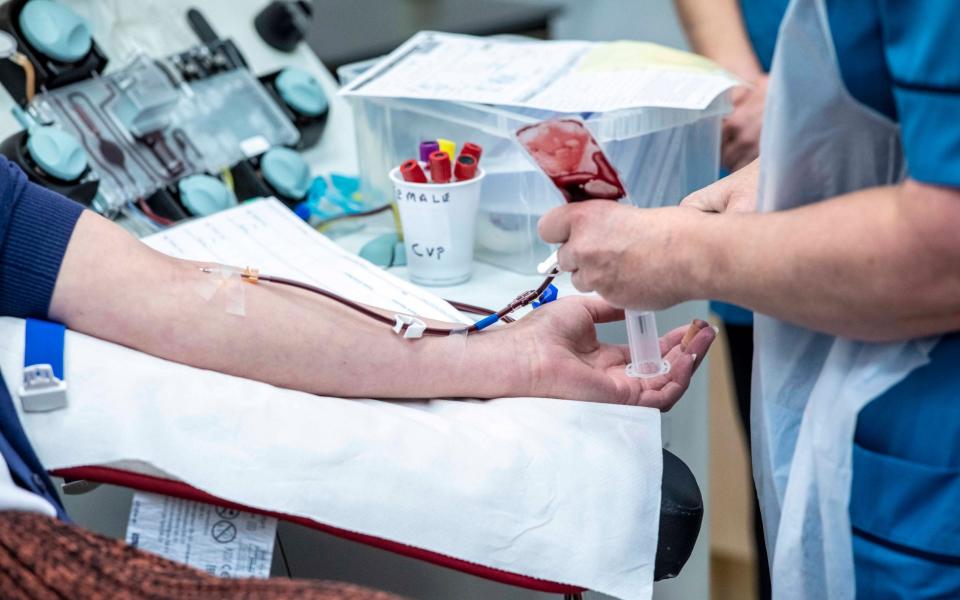What your blood group says about your health

You’ve probably never paid much attention to what blood type you are. In fact, there’s a chance you might not know it at all. But it could be affecting your health, including your blood pressure, your chance of getting infectious diseases, and possibly even your risk of cancer.
According to a study from Royal Holloway that was released this week, the genes that determine your blood type are also highly correlated with the risk of central venous thrombosis (CVT), the extremely rare type of clotting that some thought was linked to the AstraZeneca Covid vaccine.
In a study of 882 people, researchers found that although people with AB type blood were 5.6 times as likely to have CVT than the control group, those with type O blood had their risk of CVT halved.
This may be happening because of the particular chemistry of how blood types work. There are eight main blood groups: A+, A-, AB+, AB-, B+, B-, O+ and O-, which are divided up in two ways. The first is with the letter or letters, which describes the different patterns of proteins and sugars on the outside of your red blood cells. The second is the plus or minus, which signifies whether you have a particular molecule called RhD on the surface of your red blood cells. About 85 per cent of British people do, meaning their blood type ends in a plus sign.
The most common blood type in the UK is O+, which 44 per cent of Brits have, and the least common is AB-, which represents just one per cent of people.
In recent years, science is beginning to suggest that blood groups could be divided further, after the discovery of several other proteins that may or may not be present in the blood. This means that eight blood groups might be oversimplified and that human blood may in fact come in hundreds of different types.
But in terms of health, where you fall in the eight main blood groups may have an effect. In many cases, having O+ or O- blood is beneficial, and means you are at lower risk of several health conditions.
Studies have shown that people with type O are at lower risk of cardiovascular disease. A large American report from 2012 found that people with type AB were 23 per cent more likely to get cardiovascular disease, and those with type B were 11 per cent more likely when compared with people with type O.
Those with type O blood may even be more resilient to environmental factors like air pollution: a 2017 study found a lower risk of heart attacks in people with O type blood, triggered in periods of heavy pollution. The study also found that people with A or B blood were 51 per cent more likely to get deep vein thrombosis.
This is perhaps not a surprise, according to Professor Lawrence Young, a virologist and professor of molecular oncology at the University of Warwick. He says that the molecules on the outside of your red blood cells, which determine what blood type you are, can change how your blood clots. “There’s no doubt whatsoever that blood group antigens affect blood clotting,” he says. “The proteins on the membrane of the cells influence these factors of stickiness, which can influence the susceptibility of blood clotting and cardiovascular disease.”
In particular, people with type O have lower levels of a molecule called von Willebrand factor, which is a blood-clotting agent. While lower levels of it in the blood have been linked with a lower risk of cardiovascular disease, in other circumstances it can cause problems. A Japanese study from 2018 found that severe trauma patients with type O blood had a 28 per cent chance of death compared with 11 per cent of other patients. This is thought to also be down to low levels of von Willebrand factor, which can increase the risk of haemorrhage.
Blood types may also affect how your body handles infectious diseases. Young says that blood groups likely evolved in response to different infectious diseases that were prevalent across different parts of the world, meaning that different types may be able to handle some infections better than others.
There is even mixed evidence on whether blood types may affect your susceptibility to Covid. A large Danish study from 2020 found that people with type O were at the lowest risk of infection, while a Canadian study found that people with type A or type AB were at the greatest risk of needing ventilation or dialysis after Covid-induced kidney failure.
But some of the science around blood types can be controversial. Since blood types are inherited, like hair or skin colour, the spread of blood groups differs hugely between different populations around the world. This means that although some conditions may be highly correlated with a certain blood group, this link could be explained by other factors, says Young. “Many people remain sceptical because it’s difficult to tease apart cause and effect with the confounding factors,” he says. “Different diseases around the world are affected by a number of things.”

The time when your blood group will most directly affect your health may be if you ever need a transfusion. For people with some rare blood subtypes, it can be difficult to source donor blood for them if they ever require it. For example, just two per cent of UK regular blood donors have type Ro, which is a subgroup of the RhD positive blood types. But demand for it is rising by 10 to 15 per cent every year, which can make it difficult to find transfusions for those in need.
Given blood types are inherited, if you need a transfusion, you will likely need one from someone with a similar ethnic background to you. This can make it difficult for people from BAME groups who need transfusions: less than five per cent of regular blood donors are from those backgrounds, although they make up 14 per cent of the population in the UK. The NHS is appealing for more blood donors from BAME backgrounds to try to help those in need.
Although there seems to be compelling science showing that your blood group can influence your health outcomes, Young says there is no need to alter your lifestyle or to ask your doctor to treat you differently. While your blood type may be one factor influencing your cardiovascular health, there are dozens of other relevant factors, including your diet, activity levels, and whether you smoke. Knowing about the different blood types is “useful at the population level”, says Young, but less so for treating individuals. “What it means when it comes to sorting out the management of an individual patient, it’s much more difficult to say,” he adds.
For more information on blood groups and becoming a blood donor, see the NHS Blood and Transplant site

